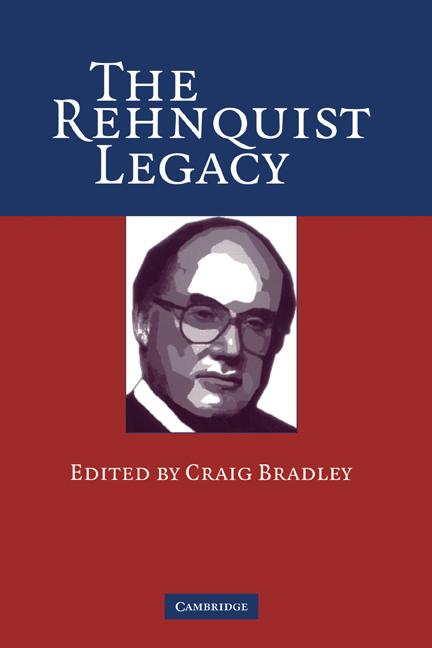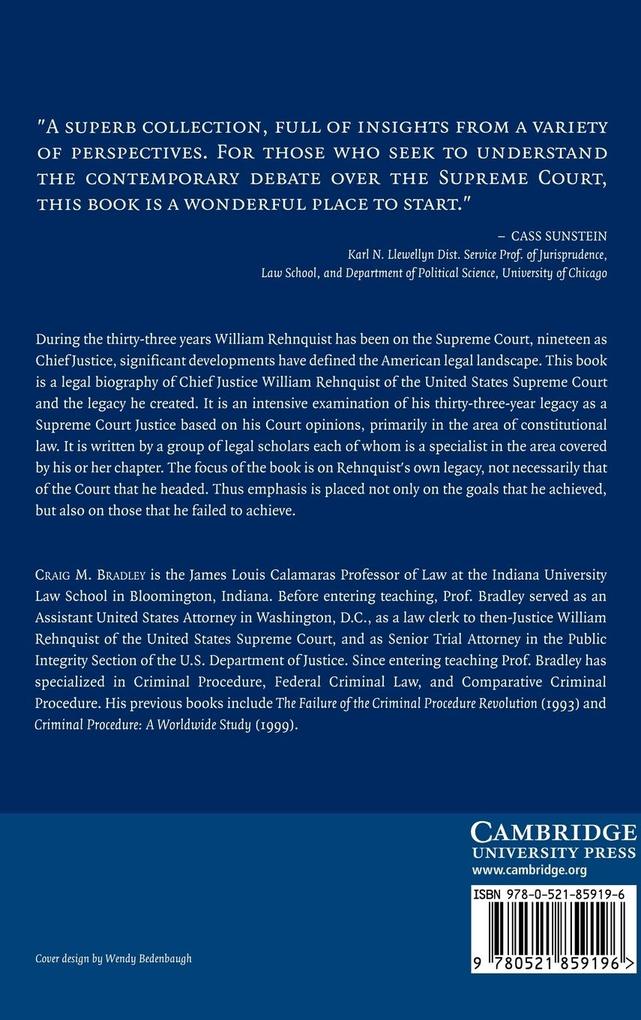During the thirty-three years William Rehnquist has been on the Supreme Court, nineteen as Chief Justice, significant developments have defined the American legal landscape. This book is a legal biography of Chief Justice William Rehnquist of the United States Supreme Court and the legacy he created. It is an intensive examination of his thirty-three year legacy as a Supreme Court Justice based on his Court opinions, primarily in the area of constitutional law. It is written by a group of legal scholars each of whom is a specialist in the area covered by his/her chapter. The focus of the book is on Rehnquist's own legacy, not necessarily that of the Court which he headed. Thus emphasis is placed not only on the goals which he achieved, but on those that he failed to achieve.
Inhaltsverzeichnis
Foreword; Introduction; Part I. The First Amendment: 1. The hustler: Justice Rehnquist and the freedom of speech or of the press Geoffrey Stone; 2. Less is more: Justice Rehnquist, the freedom of speech and democracy Richard Garnett; 3. 'I Give Up!' William Rehnquist and commercial speech Earl Maltz; 4. Indirect funding and the establishment clause: Rehnquist's trumphant vision of neutrality and private choice Daniel Conkle; Part II. Criminal Procedure: 5. The fourth amendment: 'be reasonable' Craig Bradley; 6. Dickerson v. United States: the case that disappointed Miranda's critics - and then its supporters Yale Kamisar; 7. Against the tide: Rehnquist's efforts to curtail the right to counsel James Tomkovicz; 8. Narrowing Habeas Corpus Joseph Hoffman; Part III. The Structure of Government: 9. The federalist vision of William Rehnquist Mark Tushnet; 10. Federalism and the spending power from Dole to Birmingham Board of Education Lynn Baker; 11. Upholding the independent prosecutor Daniel Farber; 12. The battle over state immunity William Marshall; 13. Transcending the routine: methodology and constitutional values in Chief Justice Rehnquist's Statutory Cases Philip Frickey; 14. Rehnquist and Federalism: an empirical analysis Ruth Colker and Kevin Scott; Part IV. The Scope of Fourteenth Amendment Rights: 15. Abortion: a mixed and unsettled legacy Dawn Johnsen; 16. Substantive due process, public opinion, and the right to die Neal Devins; 17. Privatizing the constitution: state action and beyond David Barron.












